‘It’s not a privilege. It’s a right’: Gender neutral menstrual product dispensers
Charlotte Everist, the director of health and wellness for Student Government, said the ever-increasing price of menstrual products and the experiences of those close to her transitioning in gender and overall identity have played a role in the inspiration behind the project.
When Iowa State student Charlotte Everist was diagnosed with reproductive health issues, it created a cycle of keeping her periods to herself and hiding the pain and embarrassment. Her experiences have contributed to her passion for menstrual equity and with that, a project of installing menstrual product dispensers on campus.
Everist, the director of health and wellness for Student Government, said the ever-increasing price of menstrual products and the experiences of those close to her transitioning in gender and overall identity have played a role in the inspiration behind the project.
The $10,000 project will allow for the purchase of 11 menstrual dispensers, not including installation. The dispensers will be placed in 11 remaining gender neutral bathrooms located in the Memorial Union (MU) that do not have them.
“I think it’s one of those things where people who won’t necessarily use the resource or don’t prioritize resources like that aren’t going to notice [the dispensers],” Everist said. “But the students that really need and benefit from it are going to notice it, and that’s going to increase their sense of belonging and well-being.”
Destigmatizing menstruation
The project started after Everist read the National College Health Assessment data that stated that gender non-conforming,
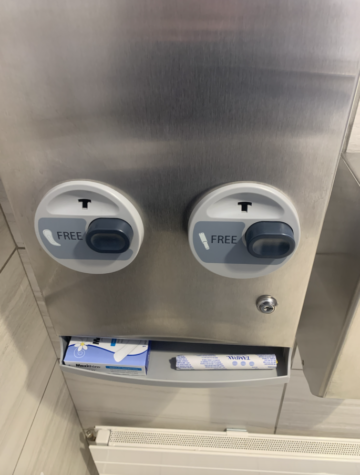
LGBTQIA+ and other historically marginalized communities on campus felt the highest percentage of isolation.
Everist said the goal was to pick a central location on campus, the MU, and put menstrual product dispensers in every gender neutral restroom.
“While I identify as female, what you identify as has nothing to do with what organs you were born with,” Everist said. “There are plenty of people who menstruate and have organs to menstruate but don’t feel comfortable asking for resources or going into a female bathroom.”
Menstruating is already stigmatized for cisgender females, so for those who are gender non-conforming, transgender, gender non-binary or anyone whose identity does not meet the status quo, there is another barrier, according to Everist.
While running for her position, Everist said she had casual conversations with students and members of Student Government, such as Kit Clayburn, who spearheaded the gender-neutral restrooms, and was met with a positive response.
“I wanted to gauge students’ real, authentic values about it,” Everist said. “Everyone I talked to seemed really excited. The goal of the project is for that small subset of students that feel isolated on campus to see the project and think someone cares.
“I think about the LGBTQIA+ community, as a member myself, the really beautiful thing is when you do a project that supports one small subject or one small faction of the community as a whole, you really show your love to the entire community.”
Timeline
It has been 10 months since the inception of the project when Everist took her position in Student Government.
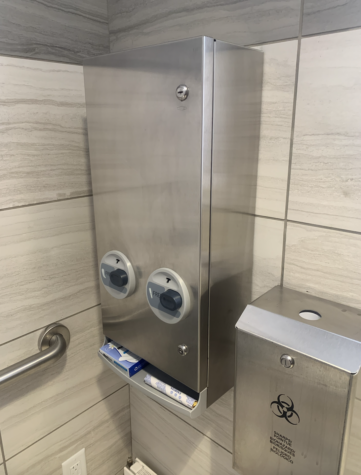
Everist said the biggest thing that helped get started with the project was getting connected with people in student wellness, including Brian Vanderheyden, director of student wellness, and Erin Baldwin, associate vice president of health services.
“I basically just kind of started gathering partners, and then getting their opinion,” Everist said. “Everyone agreed that it was a necessary resource that we should provide on campus.”
Gathering funding was the most difficult part, according to Everist, who, now, has all funding for the project gathered.
Currently, Everist is waiting for the logistics side to be finalized by the MU, which includes ensuring Americans with Disabilities Act (ADA) compatibility regarding installation.
Everist said the dispensers come off the wall, so there needs to be a change in the depth of the floor for those that are visually impaired.
“There’s a lot of things that people usually don’t think of,” Everist said. “There’s a lot of working parts besides just ordering the dispenser and command-hooking it into the wall.”
Everist said the project is now in the university’s hands, so timing the end product is difficult since there needs to be coordination between many different departments.
Campus partners
“My partners are really all over campus,” Everist said.
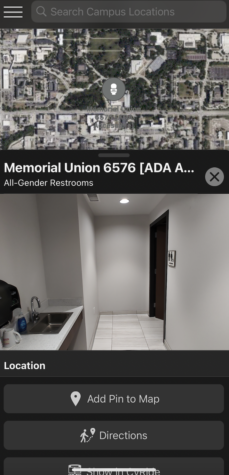
Members of Student Government, the health and wellness committee, and partners at the MU, such as Brad Hill, were all part of putting Everist’s project into action.
“While I know all my campus partners are doing it, like, really out of the goodness of their heart, they deserve recognition for it,” Everist said.
The dispensers will include notes that list who donated the dispensers.
Donors include the Iowa State Police Department, Student Government, specifically the green initiatives fund, The Center for LGBTQIA+ Student Success and Margaret Sloss Center for Women and Gender Equity.
“ISUPD and Department of Public Safety, Chief Newton has been a great support,” Everist said. “That department gave the largest donation of just over $4,500 for dispensers, so I’m so grateful to them.”
Everist said these entities and the MU will be able to keep the project going.
“I am really excited because these campus partners like the Sloss house, and The Center and ISU PD are going to be around long after I graduate,” Everist said. “I think it’s really possible we could see the dispensers in every gender neutral restroom on campus at some point in time.”
Dispenser features
To gain student perspective after the installations, Everist has designed a survey attached to the dispensers using a QR code. The 4-question survey will function on a scale.
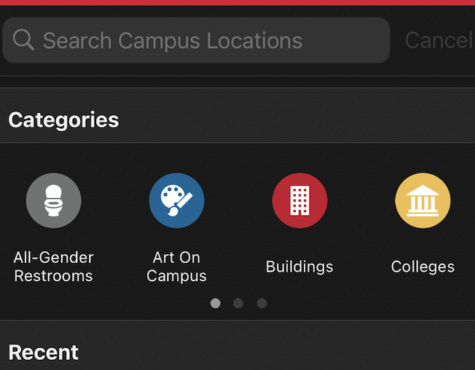
Survey:
- I use this resource on a scale from never to very frequently.
- This resource has allowed me to continue my activities on and off campus on a scale from strongly disagree to strongly agree.
- This resource makes me feel included and valued on campus on a scale of strongly disagree to strongly agree.
- I would like to see this resource in more gender-neutral restrooms on campus on a scale of disagree, neutral and agree.
Everist said the university responds well to university data, and having this survey is the best way to make sure the project has the impact it was intended to have. The feedback will allow Everist to make changes and ensure students are integral to the growth of the project.
Everist is also working with MyState to increase the accessibility of the menstrual dispensers. Students will be able to toggle menstrual dispensers on the app to locate them across campus.
This would allow students to know which gender neutral and female-identifying restrooms have dispensers.
“It’s a right to have those products,” Everist said. “ It’s not a privilege. It’s a right.”
Your donation will support the student journalists of the Iowa State Daily. Your contribution will allow us to purchase equipment, send our student journalists to conferences and off-set their cost of living so they can continue to do best-in-the-nation work at the Iowa State Daily.

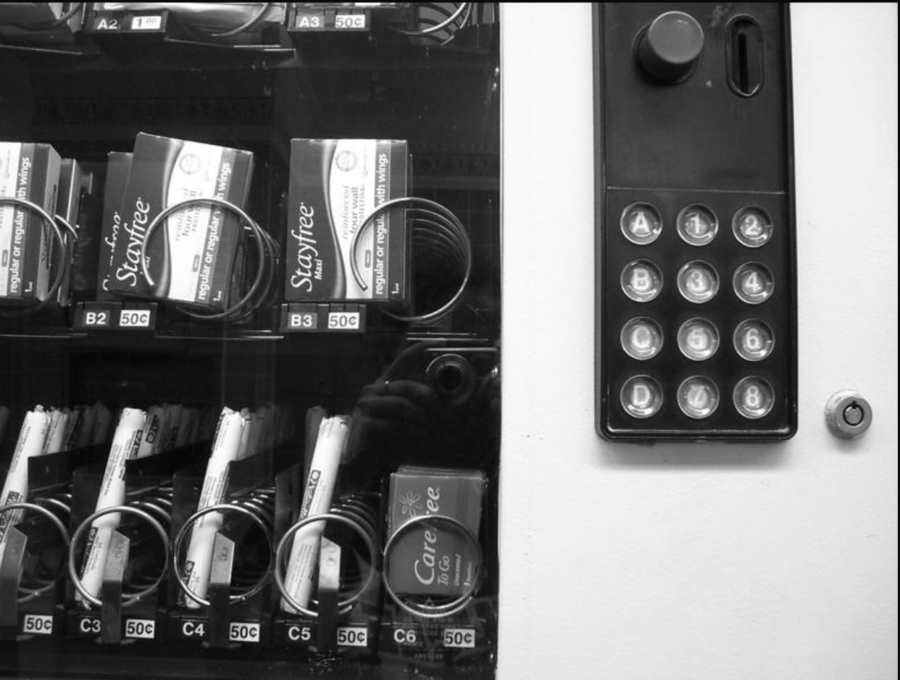









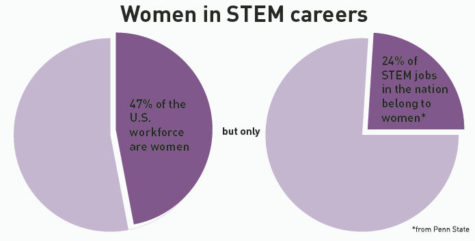
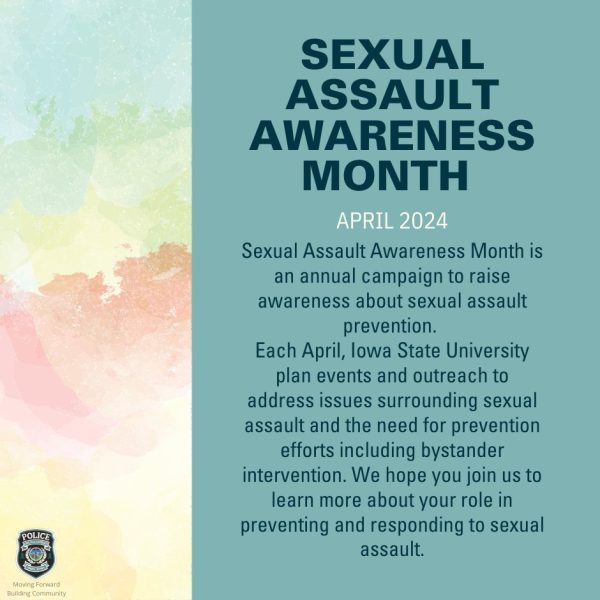
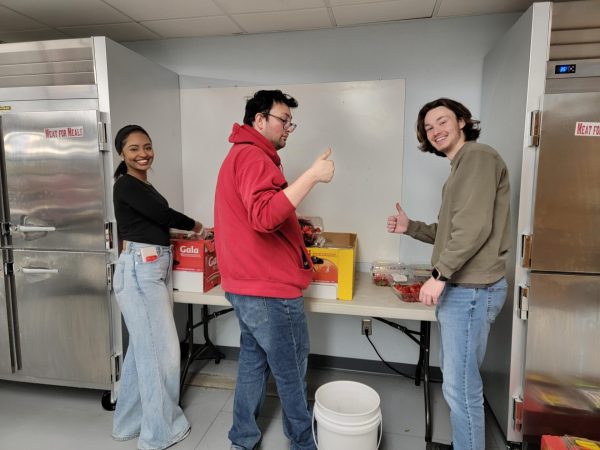


Alex Davenport | Feb 17, 2023 at 9:41 am
Hope to see these in all restrooms on campus some day!
Kris Stacy-Bates | Feb 17, 2023 at 8:37 am
Parks Library is another location where all the gender-neutral restrooms have dispensers with free menstrual products.